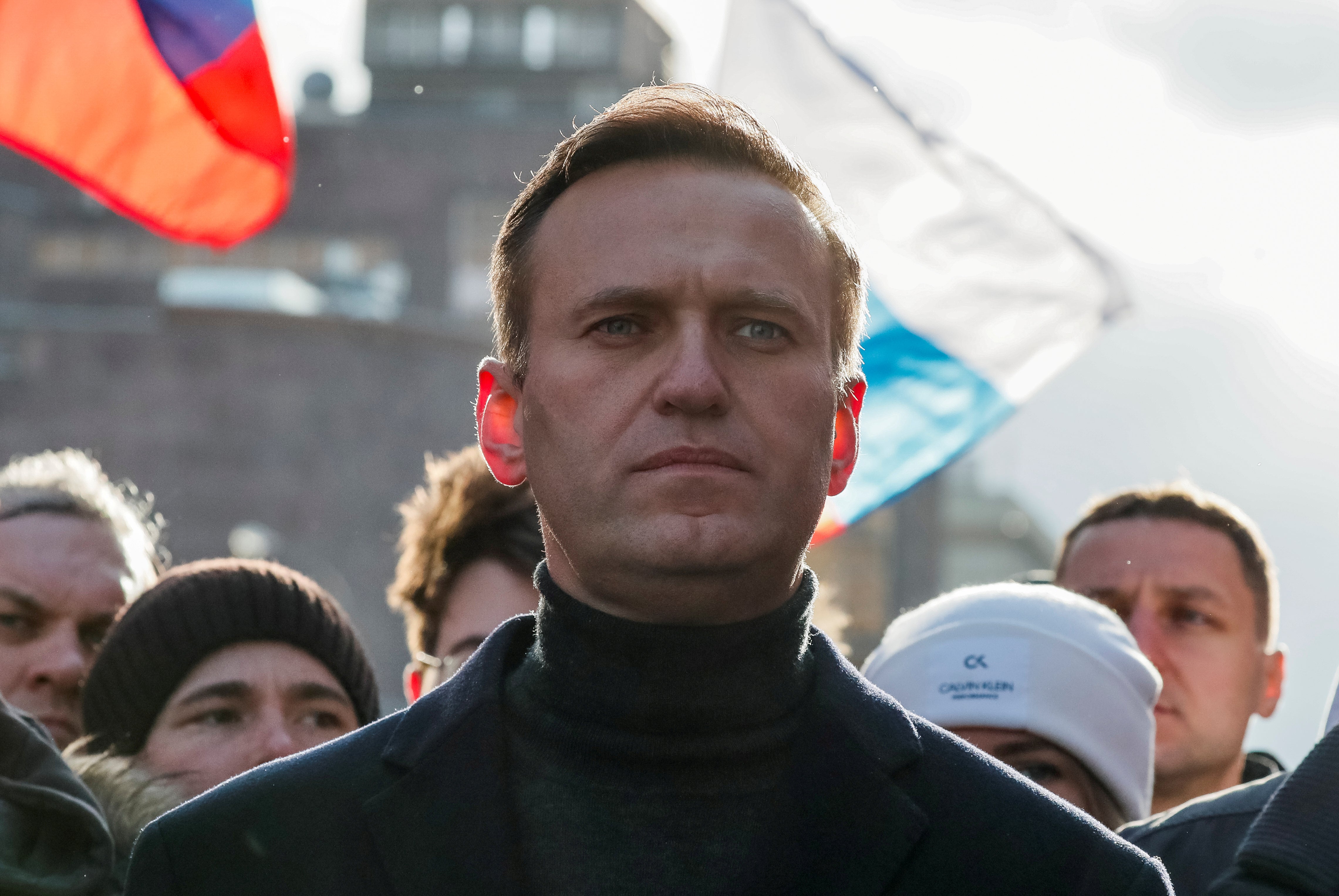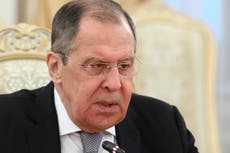Alexei Navalny: UK and EU impose sanctions on six Russian officials over poisoning
Prominent Putin critic believed to have been poisoned with novichok

The UK and the European Union ratcheted up pressure on the Kremlin on Thursday, unveiling sanctions on six Russian officials in connection with the novichok poisoning of opposition leader Alexei Navalny.
The new sanctions regime touches the highest echelons of Russian politics. Heading the blacklist is Sergei Kiriyenko, the chief of domestic policy in the Kremlin (and a former prime minister), alongside Alexander Bortnikov, the head of Russia’s security agency.
Other top-table names subjected to asset freezes and travel bans include the Kremlin executive Andrei Yarin, deputy defence ministers Pavel Popov and Alexei Krivoruchko, and presidential envoy Sergei Menyailo. The research institute believed to have developed the novichok nerve agent is also included in the list. Shortly after the European announcement, Norway and the United Kingdom announced they would be introducing identical measures.
Dominic Raab, the UK’s foreign secretary, said: “Together with our international partners, we are sanctioning those responsible for the criminal poisoning of Alexei Navalny.”
He added: “Any use of chemical weapons by the Russian state violates international law. We are determined to hold those responsible to account.”
Moscow has been holding its breath ever since Germany announced it had isolated a Russian-produced nerve agent. Sanctions on the Kremlin’s security and its military-industrial complexes were expected. The inclusion of Mr Kiriyenko, who sits right at the heart of the Kremlin’s political leadership, was perhaps not. It would be difficult to name a more influential political figure in the Kremlin below the president.
According to the former Russian diplomat Vladimir Frolov, the EU’s “escalatory” move was designed as a way of signalling that the bloc was holding Vladimir Putin personally responsible. “It’s a chain of command, custody of weapons kind of logic,” he suggested.
In comments to journalists on Thursday, presidential spokesperson Dmitry Peskov insisted, on the contrary, there was “no logic” to the European sanctions. The sanctions had “harmed relations” and the Kremlin viewed them as an “unfriendly” act, he said. Moscow will take some time to analyse the situation before responding by “following [its] interests”.
In notes explaining its decision, the European Council said it concluded that the novichok nerve agent used to poison Mr Navalny was only available to Russian state authorities. From this, it made three inferences. First, the Russian political leadership in the presidential executive office knew about and “consented” to the attack. Second, that officers in the Ministry of Defence, deemed responsible for destroying chemical weapons stocks, had provided the nerve agent either with “intent or negligence.” Third, that the attack was carried out with the “involvement” of the country’s security services.
But if the EU had more specific evidence linking the six individuals to the crime, it certainly refrained from revealing it in its charge sheet. That obvious weakness would now be used by the Kremlin to undermine the message being sent, suggested Tatiana Stanovaya, chief executive of the political analysis firm R.Politik. “The names on the list is evidence that they don’t know what exactly happened. You don’t see any details about who ordered the attack, who prepared the poisons and so on. That will give the Kremlin an obvious advantage in any information war.”
If the aim of the sanctions was to change behaviours within the Russian elite, that approach was also “mistaken”, Ms Stanovaya said. Those at the highest levels of government are already “morally prepared” to be cut off from the west, and had mostly repatriated liquid assets: “Sanctions have become routine, and are accompanied by zero emotions. However loud, however painful they might be, the position is that we’ll get used to them and answer them somehow.”
As far as possible retaliation is concerned, Moscow’s next moves are unclear. In the run-up to today’s announcement, foreign minister Sergei Lavrov promised that Russia would “mirror” any measures taken by the EU. It would seem wise not to take him at his literal word. Tit-for-tat Russian travel bans and rouble asset freezes would not appear to have the same relevance in respect to EU officials.
In the past, Russian retaliation has sometimes taken unpredictable forms. In December 2012, the Kremlin responded to US travel bans and asset freezes by introducing a controversial bill banning US citizens from adopting Russian children. In 2014, it banned food products from the European Union following EU sanctions over Crimea and eastern Ukraine. In 2016, it made no public response at all after Barack Obama expelled dozens of embassy staff over Russian hacking.
The Kremlin may eventually prefer to keep any retaliation away from the public field, suggested the former diplomat Mr Frolov.
“Either way, it’s best not to underestimate their creative spirit,” he said.
Join our commenting forum
Join thought-provoking conversations, follow other Independent readers and see their replies
Comments

Bookmark popover
Removed from bookmarks